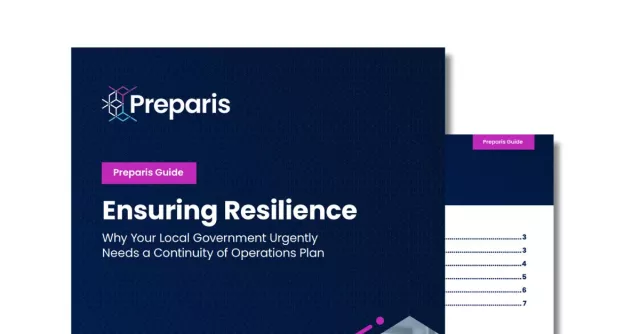Top 10 Questions to Ask When Developing or Updating Your Continuity of Operations (COOP) Plan

A Continuity of Operations (COOP) plan is an important component of preparedness. It outlines what the organization should do to keep its essential functions working during and after a disruption. Unfortunately, some organizations have no plan at all. Others have a semblance of a plan, but key elements are incomplete, out of date, or missing altogether.
To help your organization determine the quality of its approach to COOP, consider the following ten questions:
1. Has my organization fully defined its potential hazards and risks?
A comprehensive analysis of the organization’s hazards and risks is a fundamental part of any COOP. These threats should serve as guides for planning, preparation, and exercising.
2. Are my organization’s essential functions clearly defined according to the severity of a disruption?
A COOP is developed to ensure an organization’s essential functions are maintained both during and after a disruption. As such, it is imperative that all of these critical functions are clearly outlined and appropriate actions are detailed.
3. Are my contacts accurate and up to date?
People make decisions and implement plans. It is crucial, then, that COOP plans incorporate accurate and up-to-date contact information. This should include full names, proper titles, division, multiple contact methods, etc.
4. Do my teams accurately reflect the organization’s desired method for segregating responsibilities?
Addressing a disruption through alternate facility relocation or other similar methods requires significant effort best managed through collaborative teams. COOP plans should ensure team responsibilities accurately reflect organizational needs and that participating team members have been appropriately assigned.
5. Are my orders of succession correct and complete, and do they include up to three levels of succession?
To ensure continuous leadership in the face of a disruption, organizations must define orders of succession for key positions or roles. A common mistake is to name only one successor. Orders of succession should be assigned a minimum of three levels deep.
6. Do my delegations of authority cover necessary functional activities and have properly assigned authorized acting agents?
It is imperative critical operating functions endure in the face of an organizational disruption. Authorizations for travel, payroll, purchasing, etc. must continue, even when the primary authority is not available. As such, proper acting agents, who have the authority to make decisions and approve transactions, must be assigned. Like orders of succession, delegations of authority should also be assigned at a minimum of three levels deep.
7. Are my alternate facilities firmly in place, and is my facility manager’s contact information complete and accurate?
The primary focus of a COOP is to provide a plan for deconstructing organizational essential functions and reconstituting them elsewhere when a disruption occurs. Though every disruption doesn’t call for an alternate facility, plans should account for situations where this is a necessary option. Accordingly, all alternate facility details must be covered before a disruption arises. This includes any necessary contracts, procedures, etc. for relocation. It is also important for primary and alternate facility contact information to be kept accurate and up to date.
8. Have we identified our essential records and resources and confirmed these are current?
Virtually all essential functions within an organization have underlying records or data to support the function. Whether it’s emergency operations plans, employee contact records, legal documents, planning software applications, etc., these must be managed, maintained, and protected to ensure the essential function can continue during a disruption. Given this, organizations must clearly specify which records are essential, where backups exist, who has the authority to access them, and what procedures are in place to ensure these records are kept current.
9. Do we have clearly defined COOP activation procedures?
COOP activation procedures should be spelled out in detail. This includes information on who makes the decision to activate, how/when people will be notified, what people need to do specifically, etc.
10. Do we have effective procedures in place for notifying personnel about a COOP activation?
A COOP is meaningless if personnel are unaware of its activation. Organizations should have alert and notification procedures in place to notify people of the activation and any associated instructions.
To learn more about developing and maintaining an effective COOP, reach out to the team at BOLDplanning today.


